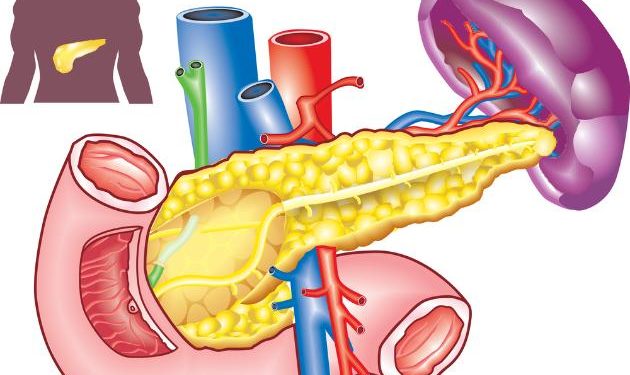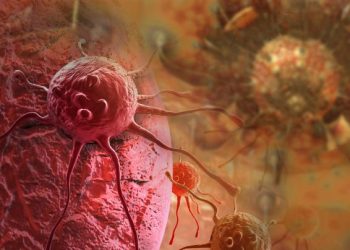Hepatocellular carcinoma (HCC) is the most common type of liver cancer and is usually found in people with advanced liver disease like cirrhosis. Unlike many other cancers, HCC grows slowly and can be cured by surgery or a liver transplant.
Treatment options include surgical removal, a liver transplant or locoregional treatments such as TACE and radiofrequency ablation. New systemic therapies have expanded the range of HCC treatment and predictive molecular approaches may soon shape personalized HCC care.
Surgical Resection
Surgical resection involves the surgical removal of cancerous or diseased tissue. It may be done through open surgery or a minimally invasive procedure like a laparoscopy or robot-assisted surgery. A surgeon will decide which technique to use based on the type of surgery and your medical condition.
For early-stage HCC, the goal is to remove the tumor and prevent it from growing or spreading. A doctor can do this using a minimally invasive procedure, such as a liver biopsy or hepatectomy. During hepatectomy, your surgeon will remove your hepatic lobe and part of your small intestine. This can be done using a robotic-assisted system or traditional surgery with a cut through the belly (abdominal resection).
In later stages of hepatocellular carcinoma, a surgeon can use drugs and radiation to destroy cancer cells. These can be given through your bloodstream to reach cancer cells throughout your body or kept in a single area of the body with local therapy.
If your doctor hasn’t removed all the cancer from your liver, you may need to have a liver transplant. This can be done either with a living donor or with a deceased donor. Having a liver transplant can help you live longer and improve your quality of life.
If your HCC has spread to other parts of the body, it is called metastatic cancer. You can be treated with medications, such as sorafenib (Nexavar) and lenvatinib (Lenvima). Your doctor may also offer targeted therapy with tremelimumab (Imfinzi) or durvalumab (Imfinzi), which can be used on their own or in combination with other treatments. Talk to your doctor about the risks and benefits of these medications. Also, ask about clinical trials that are researching new ways to treat HCC.
Liver Transplant
Your doctor may recommend a liver transplant if your liver disease is severe and you don’t respond to other treatments. A liver transplant is an operation to place a portion of another person’s healthy liver into your body. It’s done in a hospital operating room and can take six to 12 hours. After the surgery, you’ll stay in the hospital for a week or more. You’ll be under close observation and hooked up to monitors that check your heartbeat, other pressure readings, breathing rate, blood oxygen levels, and other important information.
Before you have a transplant, your doctor will order tests to see how well your liver is working. You’ll have a blood test called AST (alpha-selectin) and ALT (gamma-glutamyl transpeptidase), as well as an ultrasound of your liver and bile ducts. Your doctor will also ask you to fill out a medical history and answer questions about your lifestyle.
If your doctor determines that you need a liver transplant, you’ll be put on a waiting list. Your place on the list depends on how much liver damage you have and your other health conditions. The Milan criteria—one or more HCC nodules 5 cm or one nodule 5 cm plus a large tumor ring with extralobal extension—and MELD (model of end-stage liver disease) in adults and PELD (pediatric end-stage liver disease) in children are used to prioritize patients for a transplant.
You’ll need to take medicines for the rest of your life to prevent your new liver from being rejected by your immune system. These medicines are called immunosuppressants. They can make you more likely to get infections and cancers, especially skin cancer and lymphoma.
Radiofrequency Ablation
A specialized type of pain management procedure, radiofrequency ablation is used to treat chronic pain that comes from the facet joints of the spine. These small, paired joints are located on the back of the spinal column and can become painful due to conditions like arthritis or injury. Pain from this pain can affect your quality of life and limit your daily activities.
The procedure is minimally invasive and usually takes less than an hour to complete. A doctor cleans the skin around the insertion site and uses a local anesthetic to numb the area before inserting a needle or tube, called a cannula, into the site under X-ray (fluoroscopy) guidance. The needle emits heat from a radiofrequency current to destroy the nerve cells that send pain signals to the brain.
You may experience some pain relief immediately after the procedure, but it can take up to 10 days for the treated nerve to stop sending signals to the brain. The pain relief from radiofrequency ablation can last up to 12 months, but the pain can return if the treated nerve regrows.
Some people who get HCC may benefit from a combination of treatment techniques, such as surgery or radiofrequency ablation plus chemotherapy. These combined treatments are known as locoregional therapy, and they can improve the chances of a better outcome than surgery alone.
Another option for people with early HCC is chemoembolization, which is the injection of chemotherapy drugs directly into the hepatic artery to destroy cancer cells and slow their growth. It is often used to help people on the waiting list for a liver transplant (see above).
You may also have the option of participating in a clinical trial that tests a new approach for treating HCC. These trials are designed to test whether the treatment is safe and effective, and they can help you decide which option is best for you.
Chemotherapy
The treatment plan for late-stage hcc may include medications to destroy cancer cells. Doctors can give chemotherapy through the bloodstream (systemic therapy) or directly into the liver tumor (local therapy). Your doctor will choose which medication is right for you. A combination of medicines is usually used for a longer time than a single drug. Your doctor may also combine local and systemic therapies for the best results.
Sorafenib is currently the only standard systemic treatment for advanced hcc. However, its clinical benefit is limited by its serious side effects.
New chemotherapeutic agents have been developed and are now under evaluation in clinical trials. Many of these are combinations of a traditional chemotherapy agent with a targeted therapy or an immunotherapy agent. Some of these compounds are modified forms of drugs already in use, such as doxorubicin. For example, a new formulation of this drug has been developed using chitosan gatekeepers that exploit the acidic pH within the tumor cell and allow for selective release of the drug within the tumour.
Other small molecules are under preliminary evaluation, including some that act against c-MET, a common receptor overexpressed in hepatocellular carcinoma. Additionally, some new agents that act as tetracycline analogs have been shown to be useful in the treatment of advanced hepatocellular carcinoma.
Another way to treat hepatocellular carcinoma is with radioembolization. In this procedure, doctors place a catheter in a large vein, often in the chest area. They then insert tiny beads containing radioactive material into the artery that supplies the tumor with blood. This treatment kills cancer cells and shrinks the tumor. It is usually combined with other treatments such as surgery, radiation and targeted therapy.
Immunotherapy
Immunotherapy uses your body’s natural defense systems to fight cancer. It has led to major treatment breakthroughs for many different types of cancer.
For HCC, immunotherapy works to prevent or delay tumor recurrence. It also helps other treatments, like radiation and chemotherapy, work better.
The immune system sees cancer cells as foreign and attacks them. But cancer cells can hide from the immune system or change how it reacts so that it doesn’t find and destroy them.
Some people with hepatocellular carcinoma have mutations in their DNA that make them more likely to get cancer. Mutations may cause the cancer cells to make proteins that the immune system can’t recognize.
Immunotherapy targets these mutations and makes the cancer cells more visible to the immune system. It can be given alone or in combination with other treatments.
There are several types of immunotherapy for hepatocellular carcinoma. Your doctor may recommend immunotherapy if you have high alpha-fetoprotein levels (AFP) or your liver cancer has spread beyond your liver.
One example is pembrolizumab (Keytruda). It is an anti-PD-1 inhibitor that can help your own immune system attack your cancer. It can be given as a pill or injected into a vein (intravenously).
Another option is ipilimumab (Yervoy), which is an anti-CTLA-4 inhibitor. It can be given as a pill, injected into a muscle or under the skin, or as an infusion into a vein.
Another example is sorafenib (Nexavar). It is an anti-angiogenesis therapy that can be taken as a pill or given intravenously. It’s often used to treat HCC that can’t be removed surgically or after other treatments don’t work. It can also be used as a first treatment for HCC in combination with chemoembolization or radiofrequency ablation.









